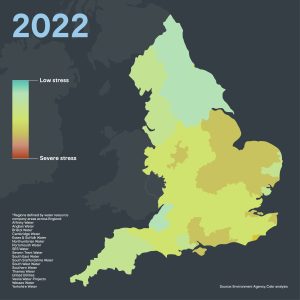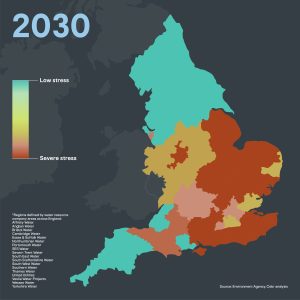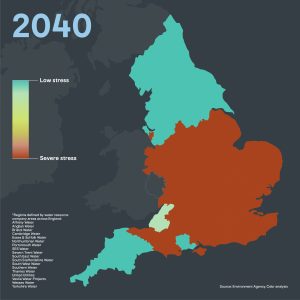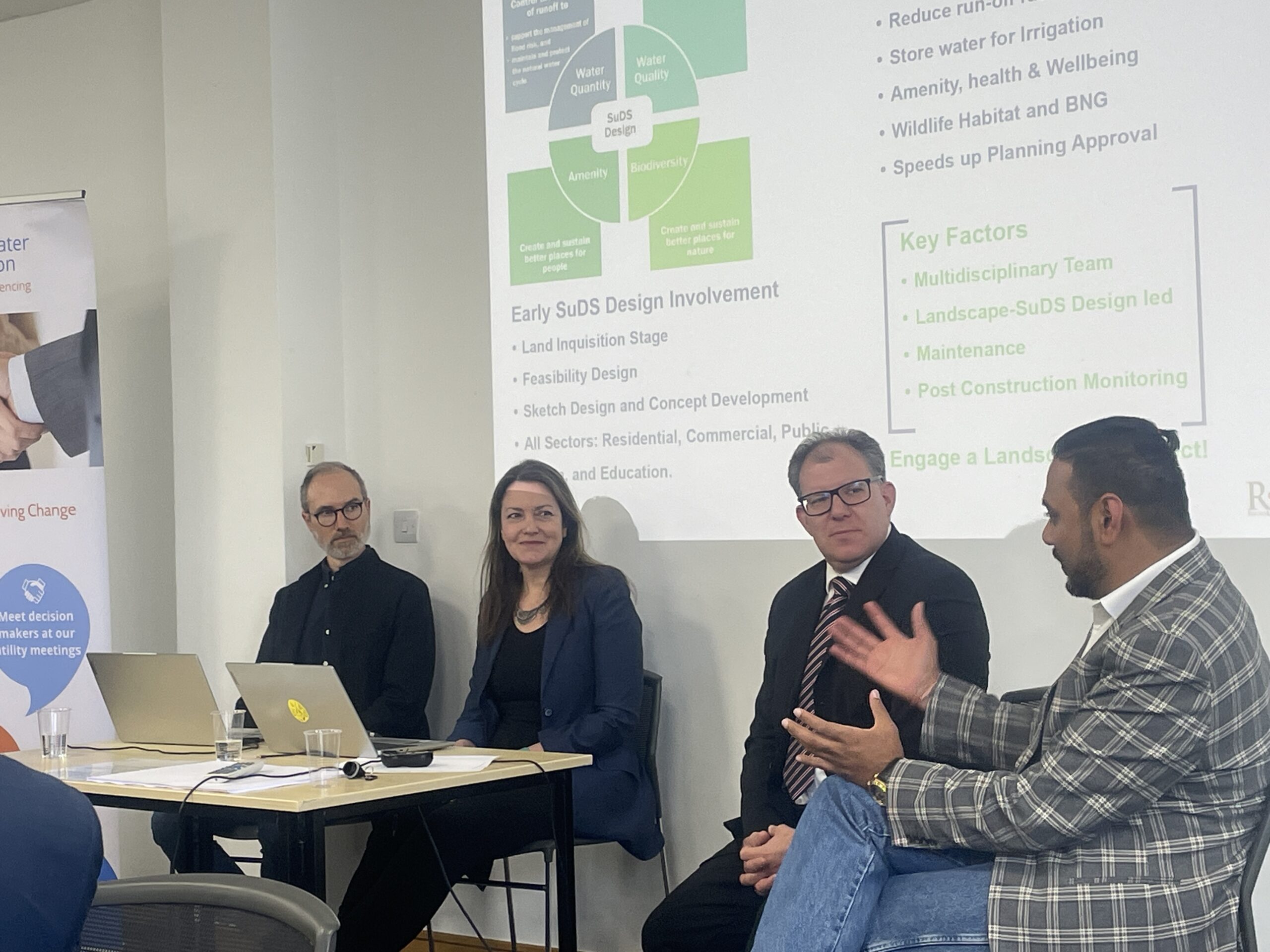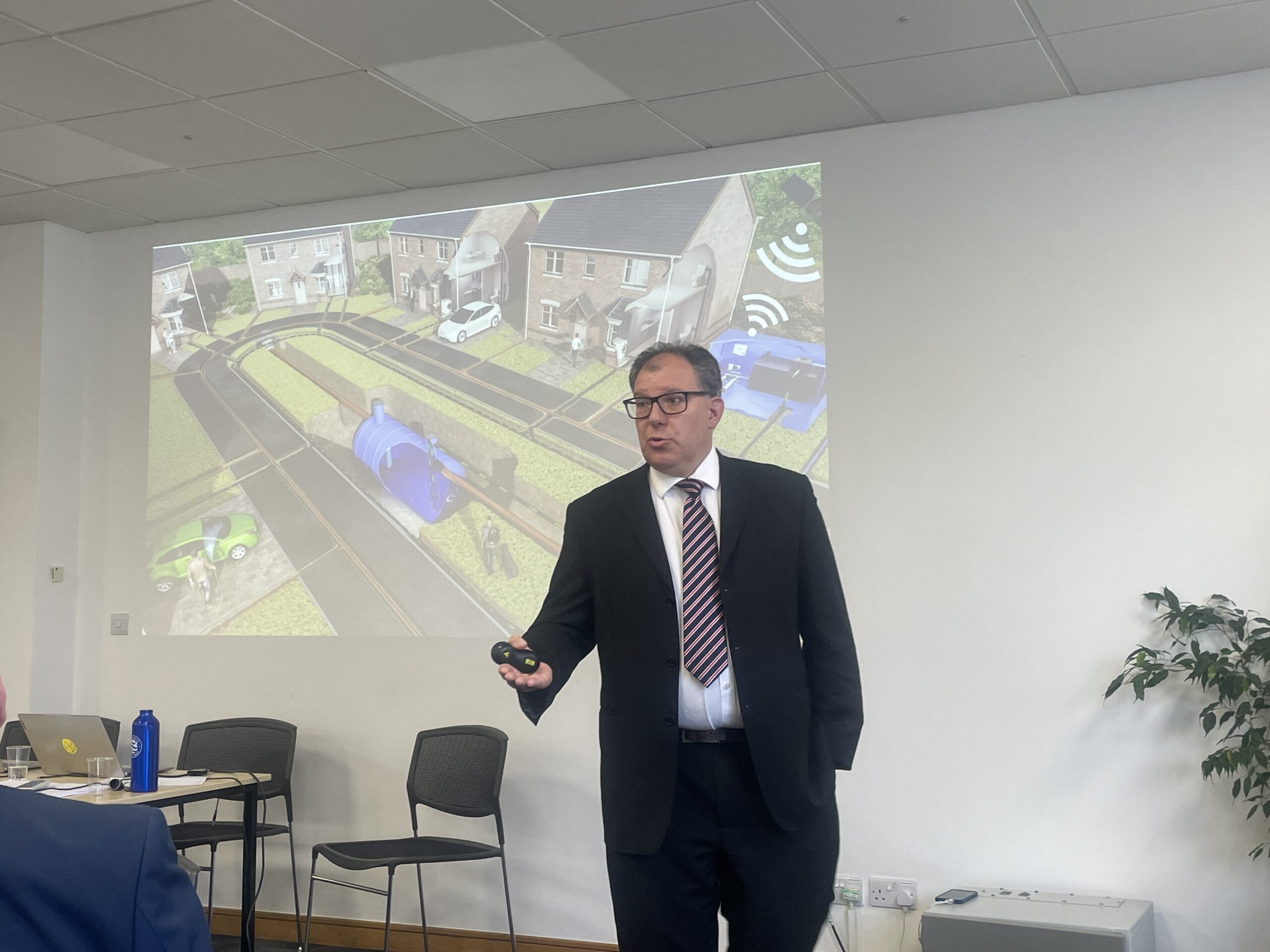Bricks and Water
Wake up! We are sleepwalking into a water crisis.
UK Vulnerability to Severe Water Stress
Source: Water Magazine 2023; Research from Kingfisher in partnership with Cebr
SHARE
According to JBA Risk Management (2022), one in four UK properties
are at risk of
flooding. Twenty per cent of the water we run through pipes across
the UK is lost to leaks (Ofwat, 2018). That’s equivalent to 3,037 million
litres each day which could fill
1,215 Olympic
swimming pools. All this water and yet the Environment Agency is warning that
water scarcity is looming ever closer. The Conservative government, if they win
in next month’s election, have pledged to build 1.6 million homes in five
years, while Labour has committed to 1.5 million. Where is the water going to
come from? Who is willing to be custodian of this community asset? Why is water
not valued in this country?
These are just some of the sobering facts and questions raised at
a conference held by the Future Water Association this week. The event,
sponsored by CIRIA, BUILDOFFSITE and EPS, brought
together a passionate crowd of water and developer professionals to talk about
the challenges ahead and also share ideas and the latest strategies for
sustainable water resource management in urban environments. If the UK is going
to build 2-300,000 houses a year, we certainly need a sustainable and
achievable plan.
David Macdonald from Radius Subterra and Ben
Crabtree from Ovarro discussed tackling leaks by streamlining
utility connections. PE pipes have evolved since they were first used
back in the 1970s and should last for hundreds of years, but the latest
joint technology is needed if we want to be leak-free.
Catherine Fearon and Ryan O’Sullivan from ESP
Utilities Ltd explained the collaboration between NAVs (New
Appointments and Variations) and developers and that they believe competition
in the water industry can only make things better. They are keen to de-risk
nature-based SuDS and work with developers to offer maintenance as part of
their overall package.
Lalit Chauhan from Zed Pods demonstrated how it is possible to
reduce embodied and operational water by using less water in construction and
using passive water systems such as SuDS.
Paul Shaffer from CIWEM was
joined by John Hernon from Thames Water to walk us through the
‘Enabling Water Smart Communities’ project. It appears we are miles behind our
friends in Europe and Australia when it comes to water smart solutions but we
have the technology and the public appetite to catch up.
Adrien Baudrimont from CIRIA highlighted two important guidelines that are available to reduce nitrogen and phosophorous in surface water runoff plus CIRIA BEST – an online
tool which helps compare projects and provide a monetary value for green and
blue infrastructure. Adrien was followed by our Director Cristina Refolo who
stressed the importance of considering nature-based Sustainable Drainage
Solutions at land acquisition. Not only do developers report that SuDS are
used as a selling point for homes, but they also speed up the planning process
and reduce costs by removing the need to retrofit further down the line.
Cristina Refolo is joined by a panel of experts to discuss place making
Cristina Refolo is joined by a panel of experts to discuss place making
Whether it was a developer, a landscape architect, an engineer or
a water utility professional, the room was unanimous when it came to the
challenges. There is a disconnect between stakeholders and a frustrating lack
of collaboration. We need to be upfront about what doesn’t work, who is going
to pay for maintenance and rethink the value of water as an economic asset and
create a workable framework for its stewardship. “We have the capabilities
to build anything,” said Martin Ballard, Head of Environment at Wates. “We just need to join up our intelligence.”
The conversation was challenging at points due to the
mounting pressures of climate change and the need to protect the environment
and manage water sustainably. However, by the afternoon, there was a feeling of
hope as we admired Regent’s Canal from the window. More importantly, the day
concluded with a plan to harness all the expertise in the room and set about
forming a Task Force for change. It was agreed that we would reconvene next
month, after the election to refine thoughts and ideas so that we can present
them to Number 10 in September when we hope the dust will have settled from the
General Election.
If you want to be involved in this discussion
and Task Force, please do get in touch.

